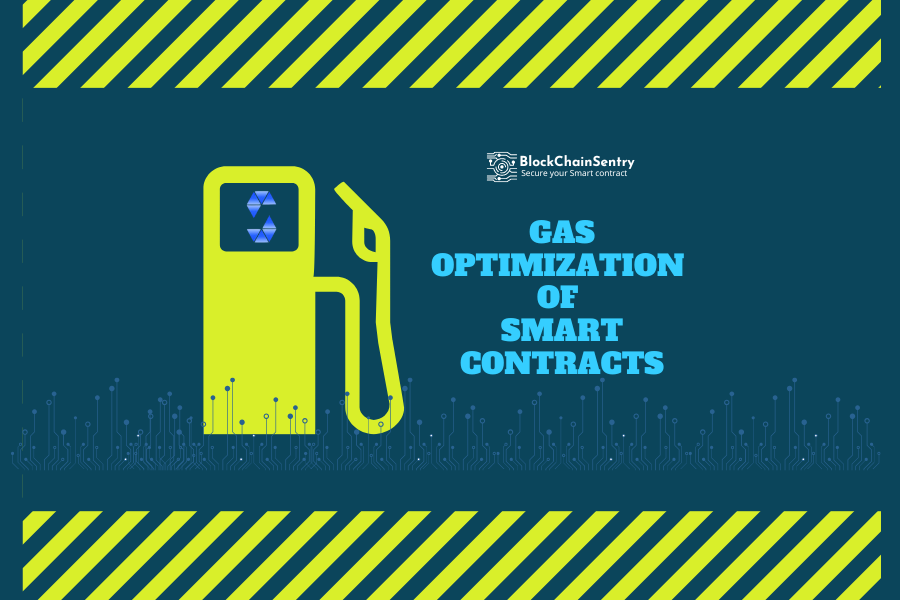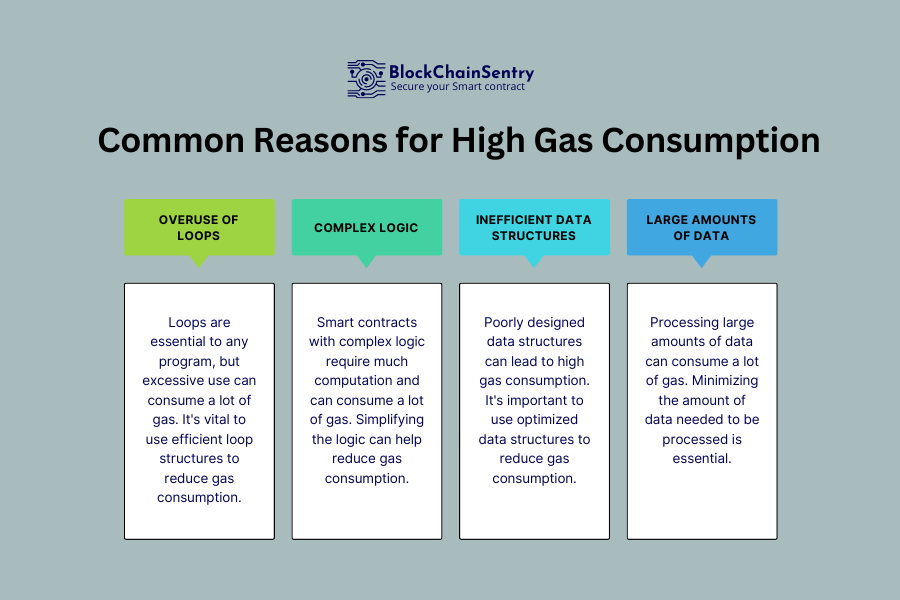Gas Optimization of Smart Contracts

Smart contracts are an integral part of the blockchain ecosystem, enabling secure, transparent, and decentralized execution of agreements between two or more parties. However, smart contracts often come with high transaction costs, which can be attributed to gas. Every action in smart contracts code requires a cost, in terms of Gas, which is a unit of measurement for the computational power required to execute a smart contract. Every transaction on the Ethereum network consumes gas, and the transaction's sender pays for it in Ether. Gas incentivizes miners to process transactions and ensures that the network remains secure. For storage of data on-chain you need to pay gas for the storage slot. In nutshell, high gas fees have been a point of concern for all blockchain developers and users. In blockchain technology, gas fees can not be avoided completely but there are ways to optimize gas consumption. Let's try to understand the reason for high gas consumption and how we can optimize it to a large extent, in this BlockChainSentry blog,
Why Optimizing Gas is a Challenge
Optimizing gas consumption is a challenge for developers because it requires a deep understanding of how smart contracts work and the intricacies of the Ethereum Virtual Machine (EVM). In addition, the cost of gas can vary greatly depending on the complexity of the smart contract and the amount of data that needs to be processed. This can make it difficult to predict a smart contract's gas cost accurately.
Furthermore, smart contracts often have complex logic and require a lot of computation, which can lead to high gas consumption. To make matters worse, gas prices can be highly volatile, making it difficult to accurately estimate the cost of executing a smart contract. As a result, developers must constantly be vigilant in optimizing their smart contracts for gas consumption.
What is Gas?
Before diving into gas optimization techniques, it's essential to understand the concept of gas. Gas is a unit of measurement used to determine the computational power required to execute a smart contract on the Ethereum network. The transaction's sender pays for the gas used to execute the contract, with the amount paid in Ether. The cost of gas is determined by the gas price, denominated in Ether. The gas price is determined by the demand for transactions on the Ethereum network and can vary greatly depending on network congestion. Transactions with higher gas prices are processed faster, as miners are incentivized to include them in the next block.
Common Reasons for High Gas Consumption
Gas consumption can be high in a smart contract for several common reasons, here are some common reasons for high gas consumption in smart contracts,

Tips and Tricks for Gas Optimization
Here are some tips and tricks to optimize gas consumption in smart contracts:
-
Use Efficient Algorithms: Using efficient algorithms can help reduce the amount of computation required, which in turn reduces gas consumption.
-
Use Optimized Data Structures: Optimized data structures can significantly reduce gas consumption. For example, using a mapping instead of an array for storing data can reduce gas consumption.
-
Minimize Data Processing: Minimizing the amount of data that needs to be processed can help reduce gas consumption. For example, instead of processing data in real-time, you can store it in a database and process it offline.
-
Use the Latest Version of Solidity: The latest version of Solidity has several optimizations that can help reduce gas consumption. Upgrading to the latest version can help improve gas efficiency.
-
Use Gas Analyzers: Gas analyzers can help identify areas in a smart contract that consume a lot of gas. These tools can help developers optimize their code for gas consumption.
Final Thoughts
Gas optimization is crucial for ensuring the efficient and cost-effective execution of smart contracts. These are a few tips and tricks shared in this blog can help reduce gas consumption and make smart contracts more efficient. There are many more steps that need to be followed for maximum optimization of gas consumption. It is important to test the code thoroughly and use gas analyzers to identify areas for optimization. BlockChainSentry's Smart Contract testing platform can help to identify issues that can cause high gas consumption. Developers can simulate the execution of the smart contract on the blockchain by testing the code and identify areas that consume more gas. This process can optimize the code and reduce gas consumption before deploying it to the main network. In addition it can help identify potential vulnerabilities in the code, provide suggestions for gas optimization, and make them more efficient and cost-effective. If you want to optimize smart contracts for gas consumption and improve their performance, contact www.blockchainsentry.com.